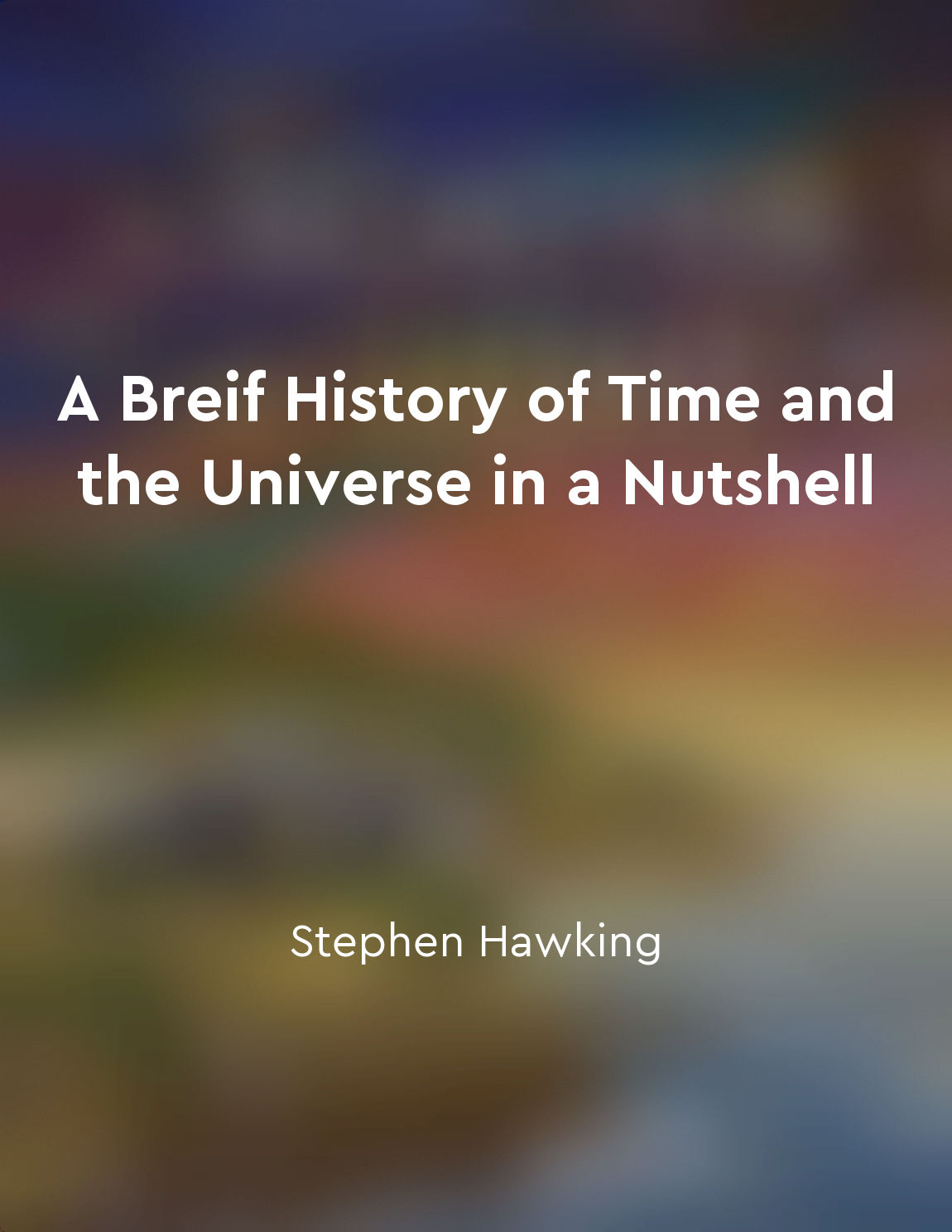Inflation theory explains rapid expansion from "summary" of A Breif History of Time and the Universe in a Nutshell by Stephen Hawking
Inflation theory provides a possible explanation for the rapid expansion of the universe in its early stages. According to this theory, the universe underwent a period of extremely rapid expansion in the first fraction of a second after the Big Bang. This rapid expansion would have smoothed out irregularities in the early universe and set the stage for the formation of galaxies and other large-scale structures we see today. During this inflationary period, the universe would have expanded faster than the speed of light, allowing it to grow to a much larger size than would have been possible otherwise. This rapid expansion would have stretched out any pre-existing irregularities, making the universe appear more uniform on large scales. This smoothing effect is consistent with the homogeneity and isotropy we observe in the universe today. In addition to explaining the uniformity of the universe on large scales, inflation theory also provides a mechanism for the generation of the small density fluctuations that eventually gave rise to the structures we see in the universe today. Quantum fluctuations during the inflationary period would have been amplified and imprinted on the cosmic microwave background radiation, leaving a faint imprint that can still be observed today.- Inflation theory offers a compelling explanation for the rapid expansion of the universe in its early stages. By positing a period of extremely rapid growth in the first moments after the Big Bang, inflation theory can account for the large-scale uniformity and small-scale irregularities we observe in the universe today. This theory has become a cornerstone of modern cosmology, providing a framework for understanding the evolution of the universe from its earliest moments to the present day.


